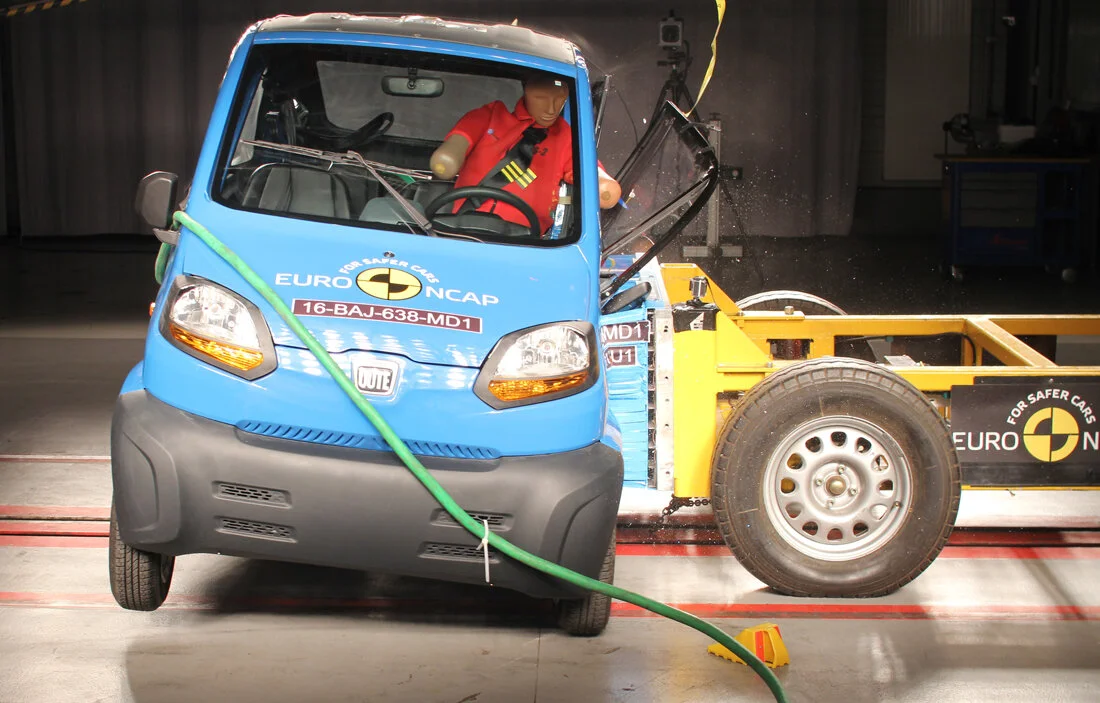Poor Quadricycle Safety In The Spotlight At UN Vehicle Standards Forum In Geneva
Significant safety problems with quadricycles revealed in European New Car Assessment Programme (Euro NCAP) crash tests will be in the spotlight at a meeting of the United Nations World Forum for Harmonisation of Vehicle Regulations (WP29) in Geneva this week (Tuesday 15 November). A display of crash tested vehicles and a presentation by Euro NCAP’s Secretary General Michiel van Ratingen will highlight the absence of any crash safety requirements for quadricycles and their shortcoming in tests well below the severity required for passenger cars.
In 2014 Euro NCAP crash tested four quadricycles available on the market in Europe. (See: http://www.euroncap.com/en/vehicle-safety/safety-campaigns/2014-quadricycles-tests/). The results revealed critical safety problems with significantly lower levels of occupant protection than for passenger cars. With support from Global NCAP, another round of testing was carried out this year and included a further four models. The new results showed that “little progress has been made with test findings as bad as they were two years ago”. (See: http://www.euroncap.com/en/vehicle-safety/safety-campaigns/2016-quadricycles-tests/).
Based on their crash test findings Euro NCAP has recommended that all quadricycles should be subject to baseline crash test safety regulation to ensure investment in safety by the quadricycle manufacturers. Global NCAP fully supports these recommendations and has called on the UN “to expedite proposals to improve the crash worthiness of category L vehicles”.
In a letter to the Chairman of WP29, Global NCAP’s Secretary General David Ward warns that “There is significant sales potential of quadricycles worldwide and it is right to act now to prevent the growth of a new class of unsafe vehicles. That is why we think it would be appropriate for WP29 to establish a new global standard for category L vehicles to ensure that they provide levels of occupant protection equivalent to passenger cars”.





